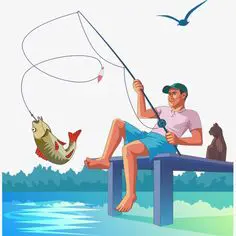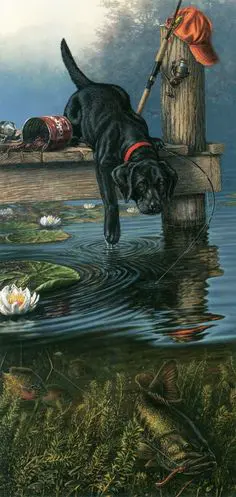
Dive into the Basics: Essential Fishing Techniques for Beginners
- Admin
For beginners venturing into the world of fishing, mastering fundamental techniques is the key to unlocking a rewarding and successful angling experience. Whether you're casting a line for the first time or looking to expand your skills, understanding the basics will lay the foundation for a lifetime of enjoyment on the water. In this article, we'll explore essential fishing techniques tailored specifically for beginners, providing you with the knowledge and confidence to embark on your angling journey.
1. Casting:
Mastering the art of casting is essential for any angler, and it's often one of the first skills beginners learn. Whether you're using a spinning rod, baitcasting reel, or fly rod, practicing your casting technique will improve accuracy and distance. Start by practicing in an open area, focusing on a smooth, fluid motion and releasing the line at the right moment to achieve a controlled and accurate cast.
2. Bait Presentation:
Effective bait presentation is crucial for enticing fish to bite. Whether you're using live bait, artificial lures, or bait rigs, presenting your bait in a natural and enticing manner is key to success. Experiment with different techniques such as drifting, trolling, and bottom fishing to determine which method works best for your target species and fishing conditions.
3. Knot Tying:
Knowing how to tie strong and reliable knots is essential for securing hooks, lures, and other terminal tackle to your fishing line. Start by learning a few basic knots such as the improved clinch knot, Palomar knot, and uni knot, as these are versatile and easy to tie. Practice tying knots until you can do so confidently and quickly, as this skill will come in handy on the water.
4. Hook Setting:
Proper hook setting is crucial for ensuring a solid connection between you and the fish. When you feel a bite or see your line move, resist the urge to immediately jerk the rod upward. Instead, reel in any slack line and then swiftly but smoothly set the hook with a firm and decisive motion. Practice your hook-setting technique to improve your chances of successfully landing fish.
5. Patience and Observation:
Patience and observation are perhaps the most important skills for any angler, regardless of experience level. Take the time to observe your surroundings, paying attention to factors such as water temperature, weather conditions, and fish behavior. Be patient and persistent, as fishing success often requires time and perseverance.
6. Safety Precautions:
Prioritizing safety on the water is essential for beginners. Always wear a properly fitting life jacket when fishing from a boat or kayak, and familiarize yourself with basic boating safety rules and regulations. Be mindful of potential hazards such as slippery rocks, sharp hooks, and inclement weather, and take appropriate precautions to ensure a safe and enjoyable fishing experience.
In conclusion, mastering essential fishing techniques is the first step on your angling journey as a beginner. By practicing casting, bait presentation, knot tying, hook setting, and exercising patience and observation, you'll build a solid foundation of skills that will serve you well in your future fishing adventures. So grab your rod and reel, head to the water, and embrace the excitement and challenge of learning to fish. With dedication and practice, you'll soon be reeling in your first catch and embarking on a lifelong passion for angling.
